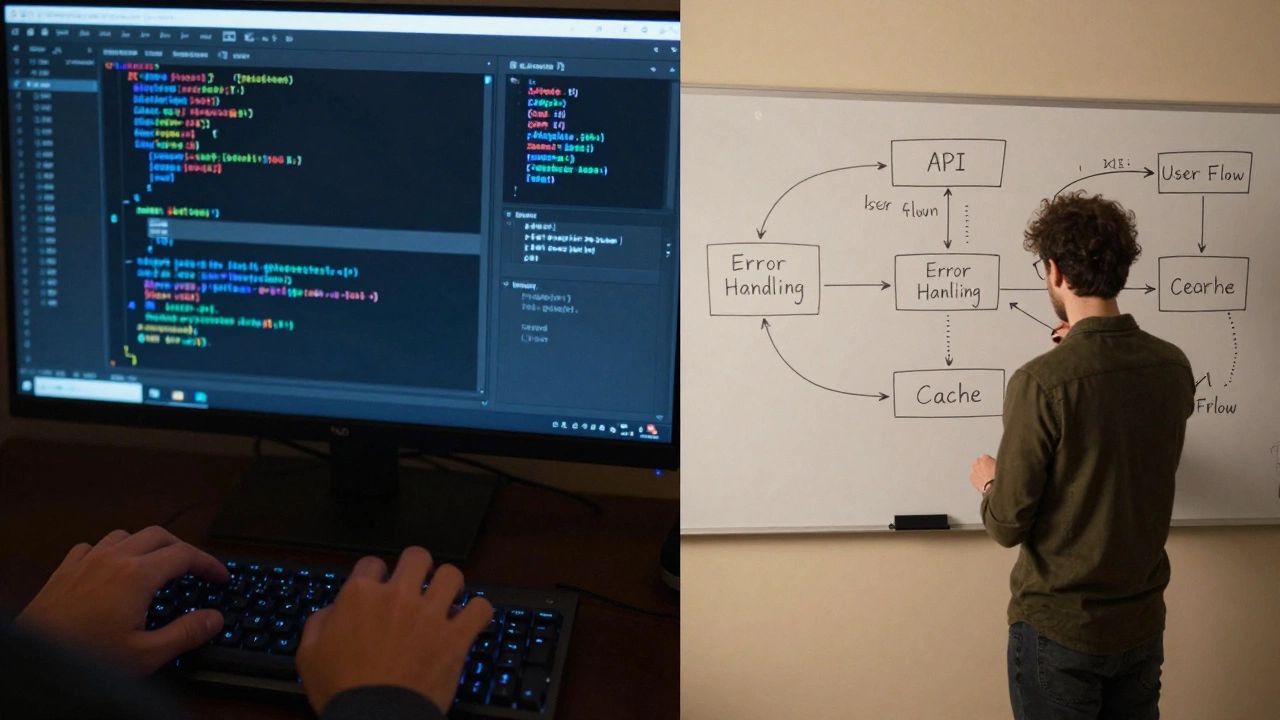How Long Does It Take to Learn Python?

So, you're thinking of learning Python, huh? Whether you're eyeing a career in tech or just curious about coding, Python's a great place to start. But you're probably wondering, 'How long is this going to take?' Well, that's a bit like asking how long it takes to get fit. It depends on where you're starting from and what you're aiming for. Some folks pick up the basics in a few weeks, while others might take months to really get comfortable.
First things first, what's your goal? Are you looking to dabble or dive deep? If you're just looking to understand the basics, a couple of weeks of focused learning could get you coding simple scripts. But if you're aiming for proficiency to build dynamic web apps or crunch big data, expect to invest a few months.
Now, let’s talk about the basics. Python's known for its simple syntax, so beginners often find it pretty friendly. You could start writing some basic programs in just a few days. But remember, Python isn't just a language; it's a tool for problem-solving. So, it's not just about writing code, but understanding how to apply it to tackle problems.
- Understanding Your Goals
- The Basics: How Quickly You Can Start
- Practicing and Expanding Skills
- Leveraging Resources and Community
Understanding Your Goals
Diving into Python starts with knowing what you want out of it. Are you just curious, or do you have a specific project in mind? Your goals will help determine how much time and effort you’ll likely spend.
If you want to learn Python just for fun or personal interest, you might focus on basic tasks like automating boring stuff or playing around with simple data scripts. This can be achieved with a few weeks of study, spending maybe a couple of hours a day.
On the other hand, if you plan to switch careers or get into fields like data science or web development, the stakes are higher. You'll need a deeper understanding not just of Python, but of the libraries like NumPy, pandas, Django, and Flask. Here, you're looking at a few months of intense focus, and possibly enrolling in coding classes to really give you that edge.
Think about what you want to create. Want to automate home devices through scripting? Work on machine learning models? Your goals steer the path of your Python journey. Knowing this helps you choose the right resources and keeps you motivated when things get tough.
It's not uncommon for beginners to find an online community or forum where they can share goals and progress. It can be super motivating to see how others with similar goals are navigating their learning journeys. No matter what you choose, keep your goal in focus, and it'll help you decide what 'learning Python' means for you.
The Basics: How Quickly You Can Start
Diving into learning Python can actually be less daunting than it sounds. Many beginners find themselves writing their first lines of code in no time, thanks to Python's simple syntax that feels almost like writing in plain English. You'll be creating 'Hello, World!' programs in your first day, which is a classic rite of passage in the coding world. But don't stop there—it's just the beginning.
For complete newbies, getting comfortable with Python's basic structures—like variables, loops, and functions—typically takes 6 to 8 weeks of part-time study. This timeline is based on dedicating a few hours each week to practice. Remember, consistency is your best friend here. A little bit every day goes a long way in cementing your understanding.
Here's a quick breakdown of what you might focus on initially:
- Understanding what variables and data types are—integers, floats, strings, etc.
- Learning how to use basic operators for math and comparisons.
- Grasping control structures: if-else statements, for and while loops.
- Writing your own functions to make your code modular and reusable.
By focusing on these core concepts, you'll set a strong foundation for everything else Python has to offer. Also, don't forget about the vast online resources at your disposal. Websites like Codecademy and Coursera have interactive exercises that gently guide you through these basics.
Plus, Python's community is huge and welcoming. If you ever get stuck, forums like Stack Overflow are packed with people who are often more than willing to lend a hand. Engaging with the community can also speed up your learning as you can see how others solve problems or use Python in their projects.

Practicing and Expanding Skills
Once you've got the basics of Python down, the real fun begins. Practicing your skills is where you’ll build confidence and really start to see progress. Here's the thing: coding is a skill, and like any skill, it improves with practice. You've got to get your hands dirty and start building stuff.
Many seasoned coders will tell you practice projects are your best friends. Start with small goals like building a simple calculator app or a personal website. As you complete each project, you'll naturally start expanding your skills because you'll encounter new challenges that require different solutions.
“The best way to learn is to do. Nothing replaces hands-on experience.” — Steve Jobs
Consider participating in coding challenges on platforms like LeetCode or HackerRank. These give you a chance to solve real-world problems and often come with solutions you can learn from. It's a great way to get some practice and see how others approach the same problem differently.
If you're interested in specific areas like data science or web development, try diving into Python libraries like NumPy, pandas, and Flask. These tools can open up new possibilities and give you a taste of professional-level Python work.
Don’t shy away from seeking feedback. Join online communities or local code meetups and share your work. Other coders can offer valuable insights or helpful tips you might not catch on your own.
To track and accelerate your progress, keep tabs on what you're learning. Set aside some time each week to review and reflect on what you've accomplished. Setting specific and achievable goals not only keeps you motivated but also helps you see your growth over time.
Remember, the Python landscape is huge, but you don’t have to learn everything at once. Focus on the next step, and enjoy the journey of becoming a competent coder.
Leveraging Resources and Community
Learning Python isn’t something you do in a bubble. The programming community is massive, and that’s a huge advantage when you're trying to learn Python. Online courses are a great place to start. Platforms like Coursera, Udemy, and Codecademy offer structured courses that walk you through basic to advanced concepts. The beauty is, you can go at your own pace, which is perfect if you're juggling other commitments.
But don’t stop at video courses. Books like 'Automate the Boring Stuff with Python' are awesome for getting hands-on experience while tackling real-world problems. Plus, if you're into data science, 'Python for Data Analysis' by Wes McKinney is a must-read.
Now, let’s talk about the real power of the Python community. Websites like Stack Overflow and Reddit's Python subreddit are super helpful when you're stuck. There’s always someone around who’s been in your shoes and can help out. And if you’re looking for more live interaction, online coding forums and Meetups are great ways to find like-minded learners and programmers.
Don't underestimate the importance of practicing through projects. Sites like Kaggle offer datasets to tackle real-world problems, plus it's a cool way to jazz up your portfolio. GitHub is another fantastic resource. Not only can you find public projects to learn from, but you can also share your work. This is a solid way to get feedback and improve.
Lastly, let's peek at how people are learning Python today. The table below shows the popularity of different learning platforms and resources as of 2024:
| Platform | Popularity (%) |
|---|---|
| Online Courses | 45% |
| Books | 20% |
| Community Forums | 25% |
| Project-Based Learning | 10% |
So, make the most of these resources. Between courses, books, community interactions, and hands-on projects, you'll find yourself not just learning Python, but truly mastering it. And remember, the journey is as rewarding as the destination!

